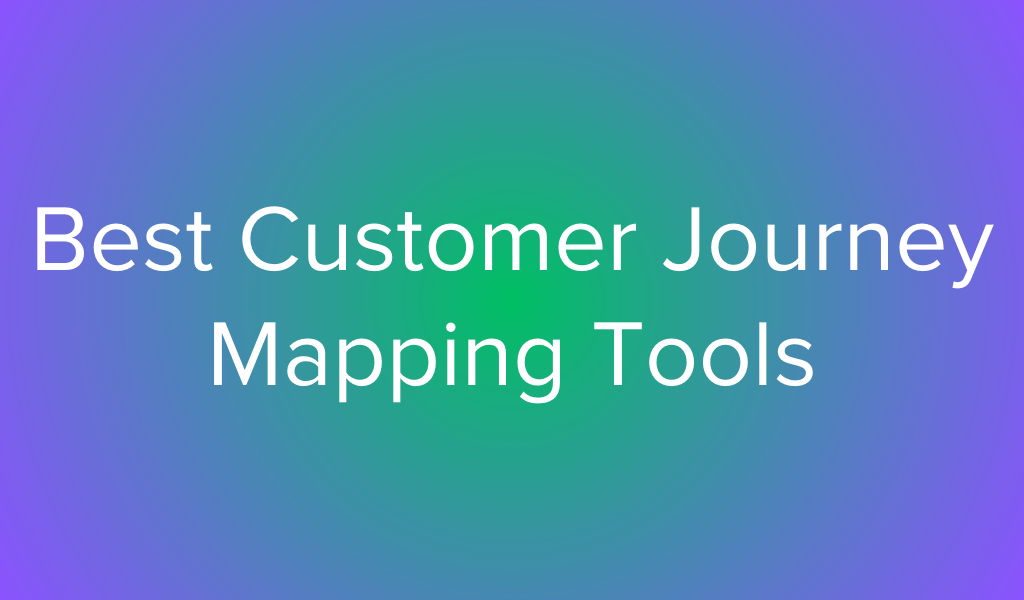4 min read
Listen and understand your customers. Win them at any stage of their journey.
cx Platform
Customer satisfaction is a key determinant of success. Net Promoter Score (NPS) has emerged as a widely recognized customer loyalty and satisfaction metric. To stay ahead, businesses are turning to Artificial Intelligence (AI) to enhance their NPS and create a customer-centric culture. In this blog post, we’ll explore how AI can be leveraged to improve Net Promoter Score and drive long-term customer loyalty.
What is NetPromoter Score?
Net Promoter Score (NPS) is a metric widely used to measure customer loyalty and satisfaction. It provides a straightforward way for businesses to gauge how likely their customers are to recommend their products or services to others. NPS is based on a simple question: “How likely is it that you would recommend our company/product/service to a friend or colleague?”
The response to this question is usually given on a scale from 0 to 10, with 0 being “Not at all likely” and 10 being “Extremely likely.” Based on their responses, customers are categorized into three groups:
- Promoters (Score 9-10): Customers who are highly satisfied and are likely to promote the product or service to others.
- Passives (Score 7-8): Customers who are satisfied but not enthusiastic. They are unlikely to actively promote the product or service but are not likely to speak negatively about it either.
- Detractors (Score 0-6): Customers who are dissatisfied and may potentially speak negatively about the product or service.
The Net Promoter Score is then calculated by subtracting the percentage of detractors from the percentage of promoters. The resulting score can range from -100 to +100. A positive score indicates that a business has more promoters than detractors, while a negative score suggests the opposite. Learn more How to Calculate Net Promoter Score (NPS)
How to Improve NPS with AI
Customer Feedback Analysis
AI excels at processing vast amounts of data quickly and efficiently. Businesses can gain valuable insights from customer feedback by employing sentiment analysis and natural language processing (NLP) algorithms. AI tools can analyze customer comments, reviews, and survey responses to identify patterns and sentiments, helping organizations understand the root causes of satisfaction or dissatisfaction.
Personalized Customer Experiences
AI enables businesses to create highly personalized customer experience. By utilizing machine learning algorithms, companies can analyze customer behavior, preferences, and purchase history to tailor their products or services. Personalization enhances customer satisfaction, fostering a sense of value and connection, positively influencing NPS.
Predictive Analytics for Customer Behavior
Predictive analytics, powered by AI, can forecast customer behavior based on historical data. By understanding customer preferences and anticipating their needs, businesses can proactively address issues or offer relevant solutions before customers even realize they need them. This proactive approach can significantly improve customer satisfaction and subsequently boost NPS.
Chatbots and Virtual Assistants
Implementing AI-driven chatbots and virtual assistants provides instant and efficient customer support. These automated systems can handle routine queries, provide information, and even assist with problem resolution. By offering quick and accurate responses, businesses can enhance the overall customer experience, contributing positively to their NPS.
Customer Journey Optimization
AI can help optimize the customer journey by identifying pain points and areas of improvement. Through machine learning algorithms, businesses can map out the customer journey and pinpoint moments that matter most to customers. By addressing these critical touchpoints, organizations can enhance customer satisfaction and loyalty, ultimately boosting their NPS.
Proactive Issue Resolution
AI enables businesses to identify potential issues before they escalate. Through predictive analytics and monitoring, organizations can detect patterns that may indicate emerging problems. By proactively addressing these issues, companies can demonstrate their commitment to customer satisfaction and, in turn, improve their NPS.
Continuous Learning and Adaptation
One of the strengths of AI is its ability to continuously learn and adapt. By leveraging AI, businesses can stay agile and responsive to changing customer expectations. Whether it’s adjusting product offerings, refining communication strategies, or enhancing support processes, AI-driven insights empower organizations to evolve in tandem with customer needs.
Wrapping up
Incorporating AI into customer experience strategies can be a game-changer for businesses aiming to improve their Net Promoter Score. By harnessing the power of machine learning, natural language processing, and predictive analytics, organizations can gain deeper insights into customer sentiments, deliver personalized experiences, and proactively address issues. As businesses navigate the digital age, embracing AI as a tool for enhancing customer satisfaction is not just a competitive advantage but a necessity for sustained success.






